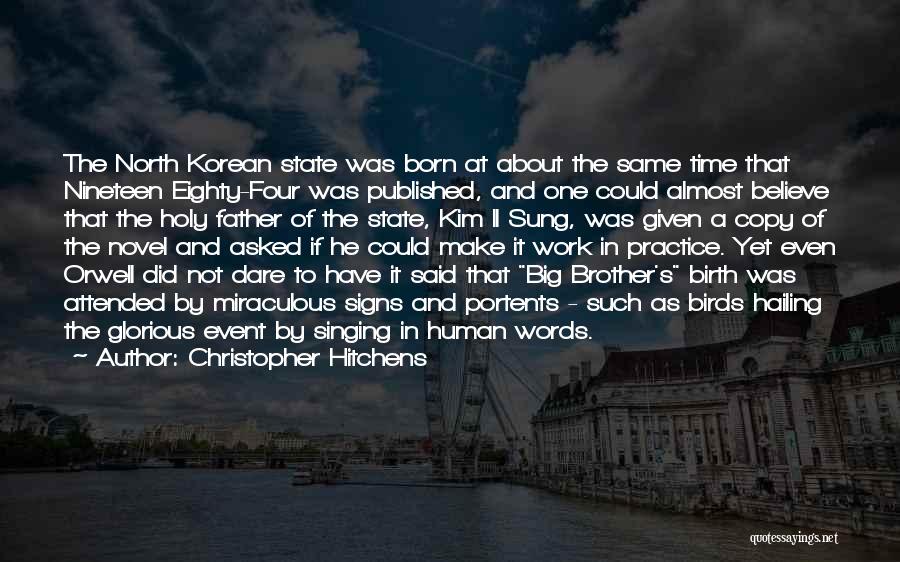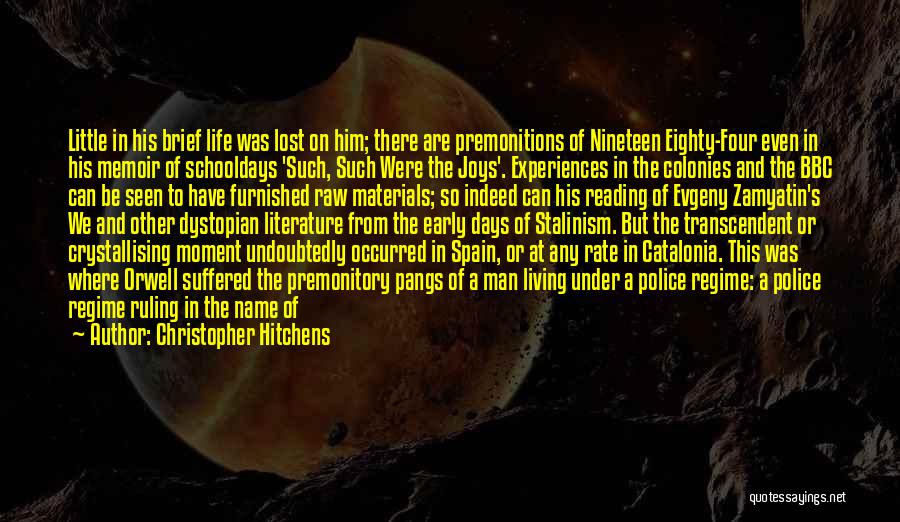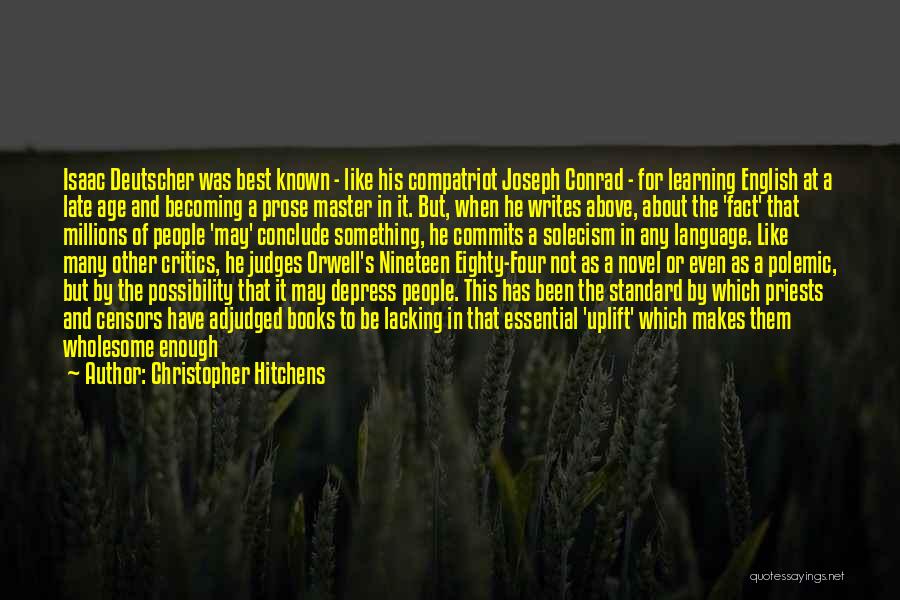Nineteen Eighty Four Novel Quotes & Sayings
Enjoy reading and share 3 famous quotes about Nineteen Eighty Four Novel with everyone.
Top Nineteen Eighty Four Novel Quotes

The North Korean state was born at about the same time that Nineteen Eighty-Four was published, and one could almost believe that the holy father of the state, Kim Il Sung, was given a copy of the novel and asked if he could make it work in practice. Yet even Orwell did not dare to have it said that "Big Brother's" birth was attended by miraculous signs and portents - such as birds hailing the glorious event by singing in human words. — Christopher Hitchens

Little in his brief life was lost on him; there are premonitions of Nineteen Eighty-Four even in his memoir of schooldays 'Such, Such Were the Joys'. Experiences in the colonies and the BBC can be seen to have furnished raw materials; so indeed can his reading of Evgeny Zamyatin's We and other dystopian literature from the early days of Stalinism. But the transcendent or crystallising moment undoubtedly occurred in Spain, or at any rate in Catalonia. This was where Orwell suffered the premonitory pangs of a man living under a police regime: a police regime ruling in the name of socialism and the people. For a Westerner, at least, this epiphany was a relatively novel thing; it brushed the sleeves of many thoughtful and humane people, who barely allowed it to interrupt their preoccupation with the 'main enemy', fascism. But on Orwell it made a permanent impression. — Christopher Hitchens

Isaac Deutscher was best known - like his compatriot Joseph Conrad - for learning English at a late age and becoming a prose master in it. But, when he writes above, about the 'fact' that millions of people 'may' conclude something, he commits a solecism in any language. Like many other critics, he judges Orwell's Nineteen Eighty-Four not as a novel or even as a polemic, but by the possibility that it may depress people. This has been the standard by which priests and censors have adjudged books to be lacking in that essential 'uplift' which makes them wholesome enough for mass consumption. The pretentious title of Deutscher's essay only helps to reinforce the impression of something surreptitious being attempted. — Christopher Hitchens





